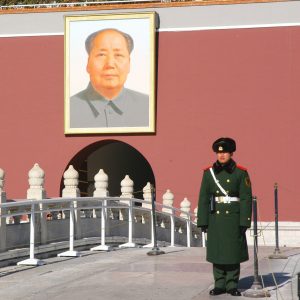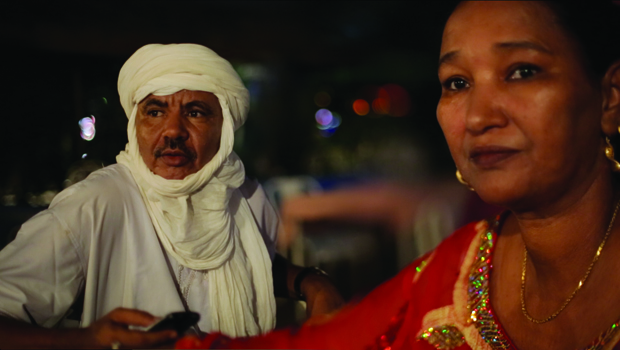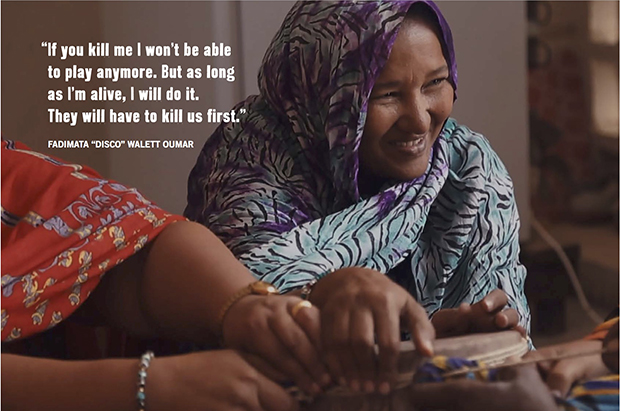1 Apr 2021 | China, Hong Kong, Media Freedom, Opinion, Ruth's blog, Taiwan
[vc_row][vc_column][vc_column_text]

Photo: PublicDomainPictures
The awful actions of the Chinese government over the last month have dominated our news agenda. The collective actions of the government and their outliers have been designed to silence dissent, to intimidate and to bully.
They have repeatedly attacked core democratic principles both at home and abroad, undermining fair political participation. They’ve arrested democracy activists, changed the law to restrict electoral access to the Hong Kong Legislative Council to sanctioned ‘patriots’ otherwise known as the allies and friends of the Government of China.
The ruling Chinese Communist Party (CCP) has also sanctioned British parliamentarians and activists for daring to speak out about the acts of genocide, happening as I type, in Xinjiang province against the Uighur community. The CCP chose not to target members of the British Government nor key businesses with sanctions.
Instead, it sent a political message and targeted backbench Conservative MPs, two think-tanks and an academic, those who had been most vocal in exposing the actions of the CCP in both Xinjiang and Inner Mongolia. This was a move intended to silence criticism not impose economic sanction, a clumsy and ineffectual effort to restrict free speech outside China’s borders.
This week, these aggressive actions by the CCP culminated with yet another attack on media freedom when the BBC’s lead China correspondent, John Sudworth, was forced to relocate with his family from Beijing to Taiwan after a campaign of state-sanctioned threats and intimidation. Sudworth and his wife, a fellow journalist for the Irish RTE, Yvonne Murray, were faced with no other option than to leave after months of personal attacks in Chinese state media and by Chinese government officials. They will both continue to report on events in China from Taiwan.
The harassment of international journalists in China (and now in Hong Kong) is becoming normalised, with dozens of journalists having to leave in recent months; threats of visas being withheld are now commonplace. This is simply unacceptable.
China seeks to be a loud voice on the global stage – they need to live up to their commitments under the Universal Declaration of Human Rights. They need to remember they are signatories to Article 19 and that media freedom and free expression are protected rights.
Index stands in solidarity with John and Yvonne.[/vc_column_text][/vc_column][/vc_row][vc_row][vc_column][three_column_post title=”You may also want to read” category_id=”41669″][/vc_column][/vc_row]
11 Jul 2017 | Digital Freedom, Europe and Central Asia, Mapping Media Freedom, News and features, Ukraine
[vc_row][vc_column][vc_column_text]
Alongside the digitalisation of journalism comes the increasing danger of cyber-attacks on media workers. Reporters in Ukraine have faced a string of such attacks recently, including cyberbullying, the blacklisting of websites and ransomware viruses, as reports to Index on Censorship’s Mapping Media Freedom project show.
“Online threats have become increasingly prevalent throughout Ukraine, and the climate of impunity that exists within the country prevents these cases from being taken seriously,” Hannah Machlin, the project manager at Mapping Media Freedom, said. “Index calls upon the Ukrainian authorities to investigate instances of online harassment more thoroughly and hold offenders accountable.”
Machlin urges Ukraine to “adhere to European press freedom standards by ceasing to censor the media, including pro-Russian websites”. Furthermore, she urges both the Ukrainian government the international community to “increase investments in digital security efforts”.
Hromadske TV journalist Nastya Stanko was the victim of a cyberbullying campaign. The harassment began on 10 June when Stanko received official thanks from Ukrainian Ministry of Defense “for significant contribution to the development of national war journalism”.
Katya Gorchinskaya, Hromadske TV executive director, claimed that the campaign against Stanko was a clear example of anonymous cyberbullying. “It’s not just a campaign against Stanko, this is just one example of harassment against journalists doing their work,” Gorchinskaya told Detector Media. “We saw many similar incidents last year, and this persecution is not only against those who spoke and wrote about the situation on the frontline, but also those who were writing about corruption in governance. Hromadske TV, Radio Liberty, Ukrayinska Pravda, Novoe Vremiya, OCCRP and all investigative journalists in general – they all suffer from such harassment.”
On 19 June, the Ministry of Information Policy released a list of 20 websites that it plans to ban, many of which are considered to be pro-Russian. These are: rusvesna.su, rusnext.ru, news-front.info, novorosinform.org, nahnews.org, antifashist.com, antimaydan.info, lug-info.com, novorossia.today, comitet.su, novoross.info, freedom.kiev.ua, politnavigator.net, odnarodyna.org, zasssr.info, ruspravda.info, on-line.lg.ua, ruscrimea.ru, c-pravda.ru and 1tvcrimea.ru.
According to the ministry, this list was compiled by experts and was sent to the Security Service of Ukraine. It believes that these websites violate Ukrainian legislation by fuelling ethnic and interethnic hostility, calling for the overthrow of the constitutional system, violating the territorial integrity of the country and violating legislation on decommunisation.
This comes after a 15 May decree by Petro Poroshenko, the country’s president, that bans a number of Russian media and social media websites including VKontakte and Odnoklassniki along with the search engine Yandex and the email service Mail.ru.
On 30 June Ukrainian news websites Korrespondent.net and Komsomolskaya Pravda were blocked for three days as a result of a ransomware attack known as Petya. A message on Korrespondent.net read: “Dear visitors, the site’s work was blocked by a massive virus attack. Our team is currently working hard to resume its work in the near future.”
According to Ukrainian police, 1,508 companies and individuals filed complaints about computers being locked by the Petya virus, which encrypts data on a computer and demands a ransom to release access. The attack is assumed to be a part of the 27 June large-scale hack which began in Ukraine, targeting the government, banks, enterprises and media outlets. Attacks also took place in Italy, central Europe, Israel, Germany and Russia.[/vc_column_text][/vc_column][/vc_row][vc_row][vc_column][vc_column_text]
Mapping Media Freedom
Click on the bubbles to view reports or double-click to zoom in on specific regions. The full site can be accessed at https://mappingmediafreedom.org/[/vc_column_text][/vc_column][/vc_row]
20 Nov 2015 | Mali, mobile, News and features

Malian musician Fadimata “Disco” Walet Oumar, with her husband, as featured in They Will Have To Kill Us First
UPDATE: The concert in Timbuktu did not go ahead as the Malian president Ibrahim Boubacar Keita declared a 10-day state of emergency following the deadly hotel attack.
Johanna Schwartz, director of They Will Have to Kill Us First, a documentary about exiled musicians in Mali, has spoken out on the attack and deaths at a hotel in the Malian capital, Bamako, today. The director has been trying to get in touch with the musicians covered in the documentary. She believes that a big concert in Timbuktu, planned for tomorrow, is still going to go ahead. Islamists have tried to stop music being played in Mali over the past few years, after they took control of parts of the country and declared it against sharia law. Many musicians fled the country.
Schwartz said: “My inbox has been flooded this morning with people wanting to know if Songhoy Blues, Disco or Khaira Arby are caught up in the hotel attack in Bamako. Songhoy Blues are right now in Paris, where they were supposed to perform this week. I wish I could say they were ‘safe in Paris’ but we all know that’s not true. Bataclan, the music venue that was attacked, is exactly the kind of venue Songhoy Blues are getting booked into these days. Khaira Arby is not in Bamako either, but in Timbuktu where a concert is planned for tomorrow evening. This will be the biggest concert in the city of Timbuktu since the music ban. (And much bigger than the street party gig that Khaira organised last year, which I filmed.) I just heard that the concert will indeed go ahead.”
She added: “An act of enormous courage from all involved. I think more than ever we need to take our cues from these great musicians, who resist these horrific attacks with every molecule in their body. They are wilfully defiant, but peacefully so. We don’t have to accept what these terror groups are trying to force upon the planet. But crucially, we need to understand why those who are accepting it are doing so. I just got off the phone with our local producer in Mali, he is calling Disco [musician Fadimata Walet Oumar] now to see where she is. A couple of his friends work at the hotel that is under attack as I type. He can’t get through to them on their phones.”
Index on Censorship has established a fund for musicians in exile in conjunction with the team behind They Will Have to Kill Us First.
8 Oct 2015 | About Index, Awards, Mali, mobile, News and features

Index is joining forces with the producers of a new feature-length documentary featuring Mali’s persecuted musicians to launch a fund that will offer support to musicians facing threats, violence, exile and criminal prosecution around the world.
In 2012, Muslim extremist groups captured northern Mali, implemented sharia law and banned all music. Radio stations were destroyed, instruments burned and Mali’s musicians faced torture, even death. They Will Have To Kill Us First: Malian Music In Exile tells the stories of the Malian musicians who fought back and refused to have their music taken away.
The Music In Exile Fund springs directly from witnessing the struggles of musicians featured in the film. The fund will contribute to Index on Censorship’s year-long Freedom of Expression Awards Fellowship Programme, supporting at least one nominated musician or group by giving access to bespoke training and assist them to create, perform and share their work in a safe environment.
Songhoy Blues, who feature in They Will Have To Kill Us First, were nominated for the Index Arts award in 2015. The current Arts award fellow is Mouad Belghouat, a Moroccan rapper who releases music as ‘El Haqed’. His music publicises widespread poverty and rails against endemic government corruption in Morocco, where he is banned from performing publicly.
“For the two years that followed the ban on music in Mali, I filmed with musicians on the ground, witnessing their struggles and learning what they needed in order to survive as artists,” said Johanna Schwartz, director of They Will Have To Kill Us First. “The idea for this fund has grown directly out of those experiences. When faced with censorship, musicians across the world need our support. We are thrilled to be partnering with our long-time collaborators Index on Censorship to launch this fund.”
The fund will be launched at the film’s UK premiere at the British Film Institute on October 13.
“When we initiated the Awards Fellowship earlier this year, we wanted to help maximise the impact that our awards could have,” said Jodie Ginsberg, Index on Censorship chief executive. “We hope that this fund will allow us to do even more to assist those facing censorship so that can focus on what they do best: create.”
The funds will be used to support at least one musician or group nominated in the Arts award category. This will include attendance at the Awards Fellowship week in April 2016 – an intensive week-long programme to support career development for the artists. This includes training on advocacy, fundraising, networking and digital security – all crucial for sustaining a career in the arts under the pressure of censorship. The fellow will also receive continued support during their fellowship year.
Our ambition is to widen support as the fund grows to support more musicians in need.
You can donate to the campaign here.




